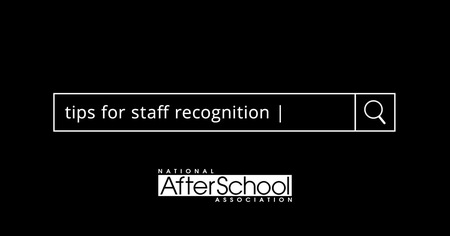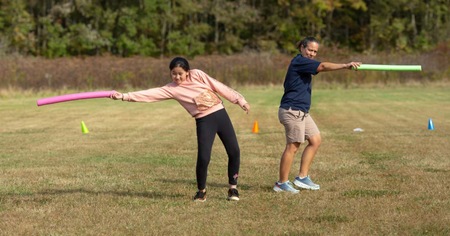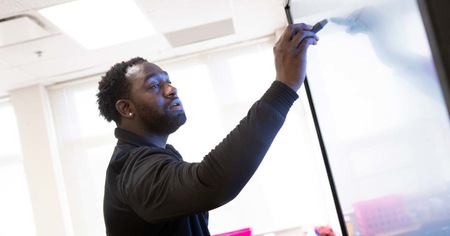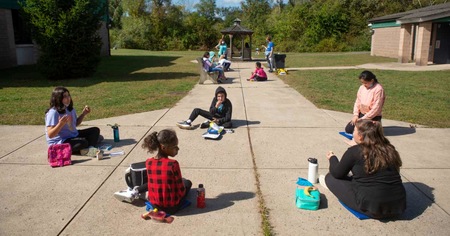Professional Development
NAA publishes fresh, new content every week covering a wide variety of topics related to the field of aftershool. In addition, NAA offers a variety of opportunities for virtual professional development (PD) through meaningful content, conversations and connections. Click here to see full descriptions of virtual PD offerings.
The Only Constant Is Change
Tuesday, 08 December 2020 09:30Recently, Gina Warner, President & CEO, NAA, shared a message regarding the status of the NAA21 Convention and connectivity during the pandemic.
Member-to-Member Tip Off: Tips for Staff Recognition
Tuesday, 08 December 2020 09:28In NAA's Reopening Afterschool Facebook group, members have been asked questions covering a variety of relevant and helpful topics with the goal of offering an exchange of tips between leaders and professionals in the field.
Improving Climate and Delivery of SEL for Youth
Wednesday, 02 December 2020 09:10Early Lessons from Schools and Out-of-School Time Programs Implementing Social and Emotional Learning presents findings from the first two years of the Partnerships for Social and Emotional Learning Initiative (PSELI), a multiyear effort exploring whether and how children can benefit from partnerships between schools and OST programs focused on building social and emotional skills.
Developing Adults’ Capacity to Promote SEL
Wednesday, 02 December 2020 09:09In order to successfully and fully support students' social and emotional development, it's crucial for adults in schools and out-of-school time (OST) programs to develop knowledge and skills that will allow them to provide high-quality instruction and create a welcoming climate.
Launching and Coordinating SEL Work Across Multiple Sites
Wednesday, 02 December 2020 09:07It's no easy feat successfully rolling out multi-site SEL efforts. Program leaders face many challenges along the way, including having an appropriate allotment of time along with school districts facing pressure related to academic instruction and test-based accountability that can often take priority over SEL.
Implementing SEL and Why It Matters
Wednesday, 02 December 2020 09:05Social and emotional learning has long been shown to be beneficial for young people, and out-of-school time programs are a prime example of where that learning and development takes place. A recent report by the RAND Corporation dives in even further.
Developing Partnerships with Schools to Advance SEL Efforts
Wednesday, 02 December 2020 00:00Partnerships between schools and out-of-school time (OST) programs are an integral facet to supporting youth development, especially due to the high potential to accelerate children's social and emotional development.
Meet Young People Where They Are Through E-Mentoring
Tuesday, 01 December 2020 13:17One of the main tenets of youth development is meeting young people where they are—in their development, interests, experiences and spaces. With the ubiquitous use of the internet, cellphones and social media among young people, adults need to consider translating traditional programs to digital technology, to meet youth where they are.
Expert Advice: It’s Time to Consider an Equity Audit
Tuesday, 01 December 2020 13:15If you've been on a journey to create a more inclusive and diverse programs, you likely already know that equity must be made a priority in all facets of an organization. Difficult conversations, more transparency throughout the organization, and ensuring you're hiring leaders who understand equity and inclusion are critical. But how do you know if your organization truly fosters equity appropriately, if at all? The answers partly lie in conducting an equity audit.
Member-to-Member Tip Off: Socially Distanced Group Games
Tuesday, 01 December 2020 13:13In NAA's Reopening Afterschool Facebook group, members have been asked questions covering a variety of relevant and helpful topics with the goal of offering an exchange of tips between leaders and professionals in the field.
National AfterSchool Association • 2961A Hunter Mill Road, #626 • Oakton, VA 22124 • info@naaweb.org










